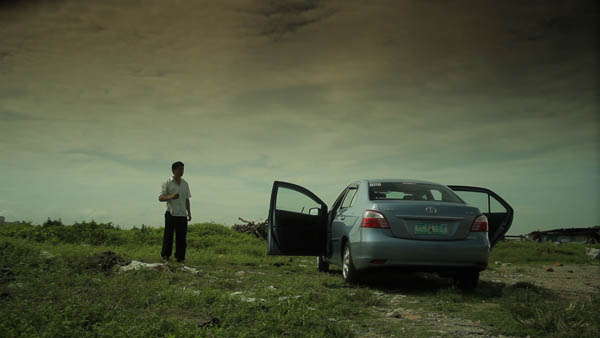 Stories about kidnapping and man’s frantic attempt to reclaim an abducted child are a cinematic tradition spanning pretty much all genres at this point, from The Searchers to Commando to Finding Nemo. This is the well-trodden path upon which Graceland is embarking. But in contrast to films like Taken, which use an abducted child as an opportunity for a rollicking, ass-kicking thrillventure, Graceland never becomes exploitation. It stays grounded, yet it is no less tense or riveting or surprising for its smaller ambitions.
Stories about kidnapping and man’s frantic attempt to reclaim an abducted child are a cinematic tradition spanning pretty much all genres at this point, from The Searchers to Commando to Finding Nemo. This is the well-trodden path upon which Graceland is embarking. But in contrast to films like Taken, which use an abducted child as an opportunity for a rollicking, ass-kicking thrillventure, Graceland never becomes exploitation. It stays grounded, yet it is no less tense or riveting or surprising for its smaller ambitions.
The story is set in the Philippines, and it centers on Marlon (Arnold Reyes, giving a wonderfully fraught performance), the longtime chauffeur of a corrupt and lecherous politician; Manuel Chango (Menggie Cobarrubias). The film opens with Marlon sleepwalking through his guilty conscience as he drives an under-aged prostitute home after his employer has finished with her — clearly not the first time Marlon has performed such a task. We can tell Marlon doesn’t feel good about this. But he soldiers on with his duties because he needs the money. When Chango is implicated by the press for his fondness for young girls, one of Marlon’s friends cracks that karma will find the politician. Well, just like Marlon has been abetting Chango’s illegal dalliances all these years, he soon finds himself dealing with the collateral of Chango’s karma too. Without giving too much away, due to a mix-up, Marlon’s daughter is abducted by men attempting to abduct Chango’s daughter. When the abductors realize what has happened, they still want their hefty ransom, which forces Marlon to lie to Chango and the authorities, pretending that the kidnappers do indeed have the right child. What sounds a little like the set-up for a farce is in reality a brutal and uncompromising story of desperation — for Marlon, for the police, and even for Chango.
Graceland – which received an Audience Award at Tribeca last year – comes from writer-director Ron Morales. The idea for the film came to Morales while in the Philippines researching a different project, when he repeatedly encountered news stories about kidnappings and child prostitution that hinted at a dark underworld of crime that seemed to operate with widespread impunity in the country. In Morales’ hands Metro Manila (capital of the Philippines) feels both alien and familiar, a squalid metropolis where men lazily kill time by staging spider fights (like ultra-small-scale cock fights), but where bribery and deviancy are the same as they are anywhere. Morales paints with an honest brush, and this gives the film its power. The film isn’t a male fantasy about Marlon’s rite of passage into an action hero, laying waste to those who dared endanger his family. This is a film of plate-spinning tension, with Marlon trying to stay one step ahead of his lies, juggling the cops and the kidnappers, just long enough to get his daughter back. The straight-forward presentation makes every rare moment of violence pack a wallop. The kidnapping scene itself will leave you just as dazed as it leaves Marlon. And the film’s scenes of child prostitution are resolute in their unsettling nature. What I admired here is that Morales isn’t trying to shock us in a button pushing way. There are no scenes of rape or even of sex involving the under-aged girls. Just nudity you’ll likely feel compelled to look away from. And I think that is important for this kind of story.
Graceland is now available in select theatrical markets and on VOD. I highly recommend it.
Rating: 




Out of a Possible 5 Stars
